Enhancing problem-solving abilities Addition Worksheets for Ages 3-9
10 filtered results
-
From - To
Boost young learners' problem-solving skills with our engaging addition worksheets designed for children aged 3-9. These worksheets, developed by educational experts, help build strong foundational math skills through fun and interactive exercises. Each sheet is crafted to enhance critical thinking, logical reasoning, and arithmetic proficiency, making math enjoyable and relatable. Perfect for preschool and elementary students, our worksheets cater to various skill levels, ensuring that every child can progress at their own pace. Dive into a world of vibrant activities and watch your child's confidence soar as they master the art of problem-solving with ease and joy.
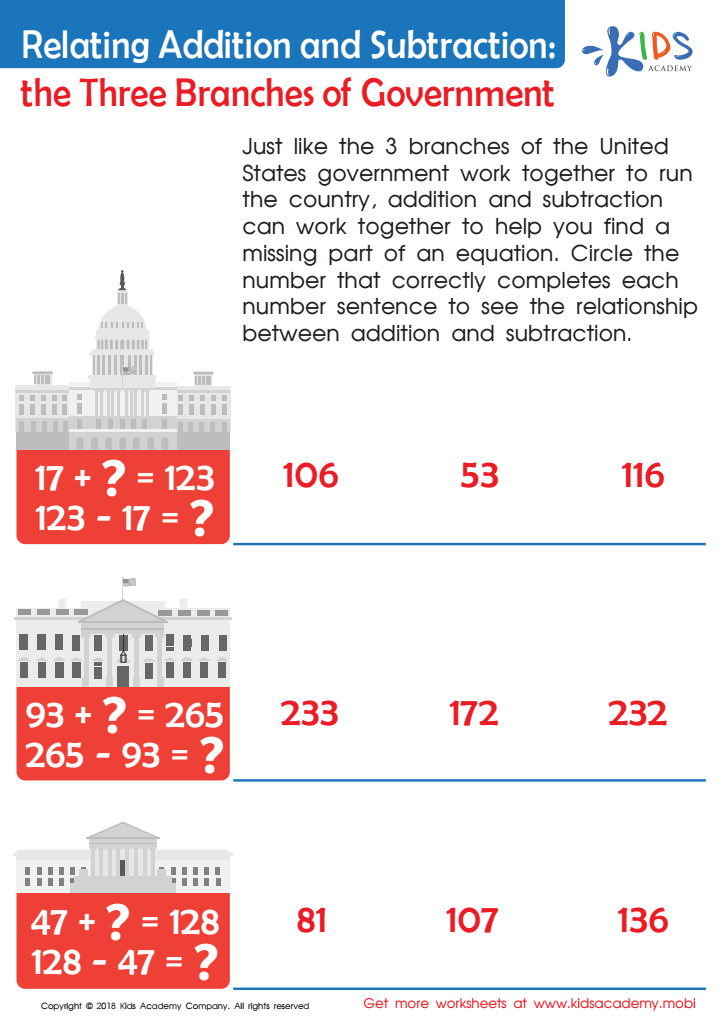

The Three Branches of Government Worksheet
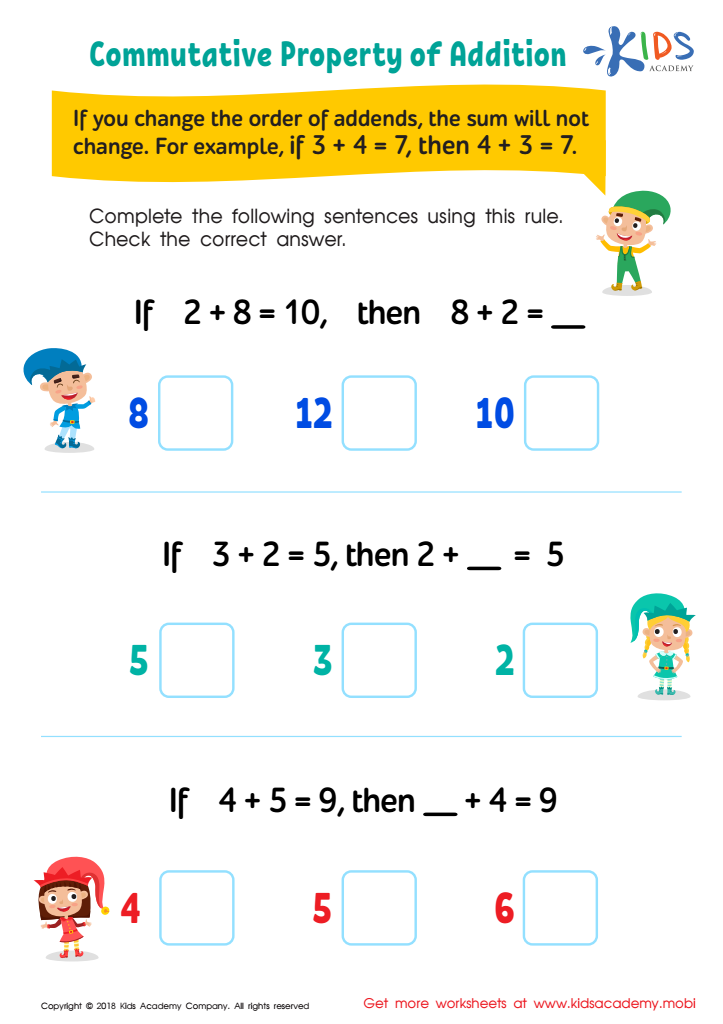

Commutative Property of Addition Worksheet
Enhancing problem-solving abilities, particularly through activities like addition, is a crucial aspect of a child's development, especially from ages 3-9. During these formative years, the brain is exceptionally receptive to learning and establishing cognitive pathways. Introducing problem-solving tasks, such as basic arithmetic, stimulates critical thinking and helps children develop logical reasoning skills. These abilities are foundational not only for future mathematical learning but also for everyday decision-making and overcoming challenges.
At these ages, learning addition goes beyond merely understanding numbers; it cultivates patience, concentration, and perseverance. Encountering and solving simple math problems boosts self-confidence and encourages a growth mindset. Children learn that making mistakes is part of the learning process, which fosters resilience.
For parents and teachers, incorporating problem-solving activities into early education lays the groundwork for academic success across various subjects. It equips children with the tools to approach complex problems methodically. Moreover, early proficiency in math is often linked to better performance in other cognitive domains, including literacy and science.
In conclusion, prioritizing the enhancement of problem-solving abilities through activities like addition is essential. It nurtures a child's cognitive and emotional growth, sets a solid foundation for future learning, and fosters skills that are invaluable throughout their lives.
 Assign to My Students
Assign to My Students
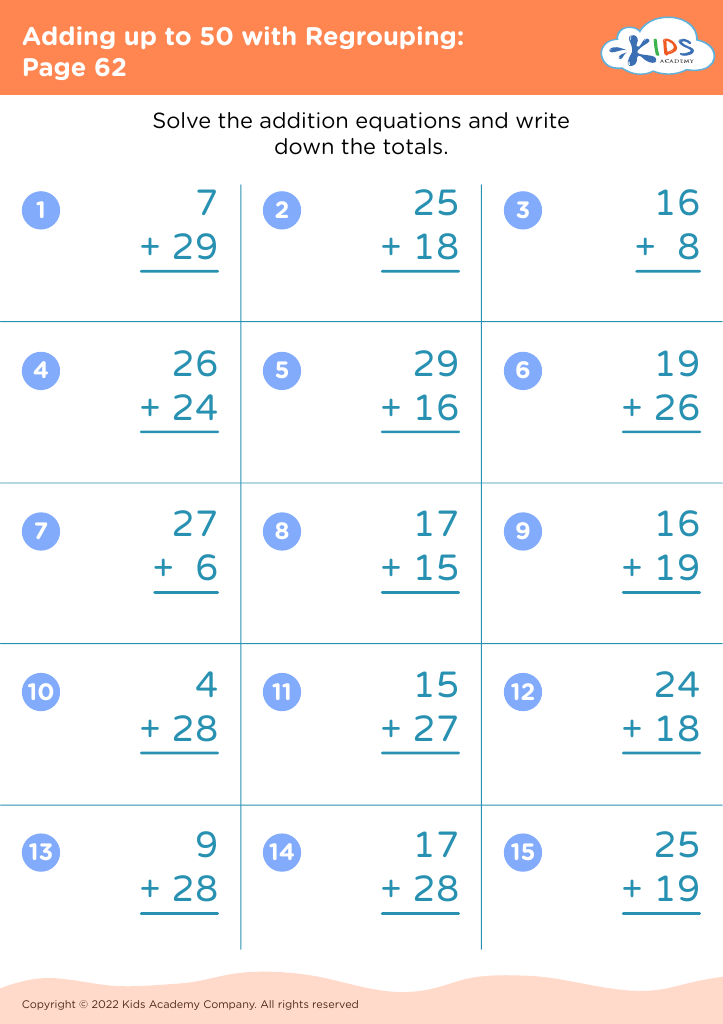



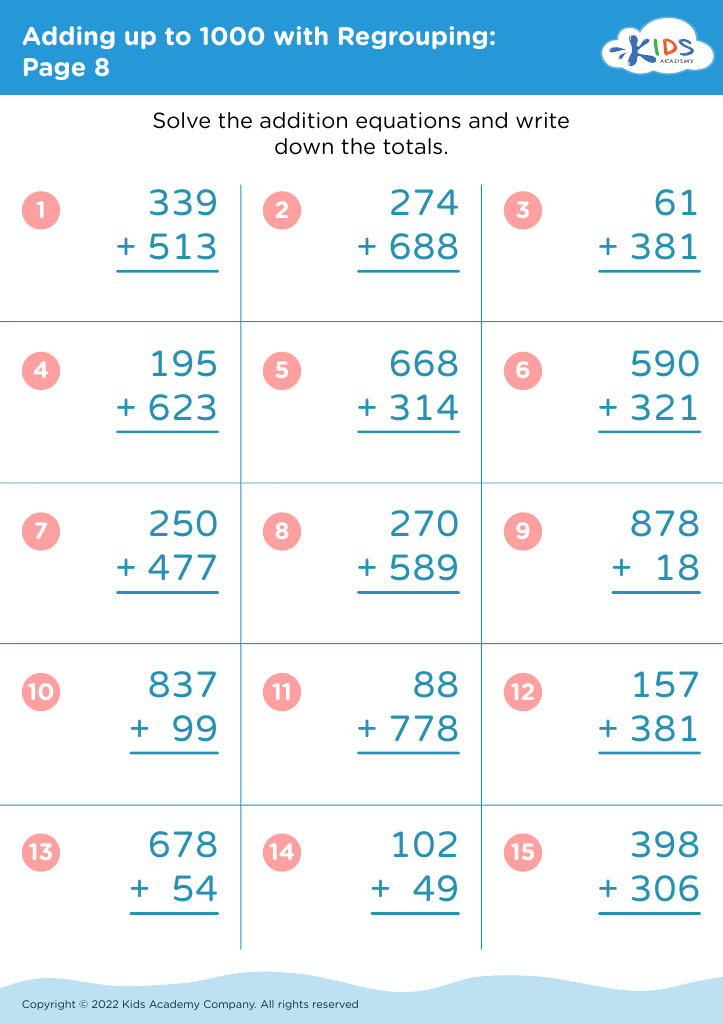
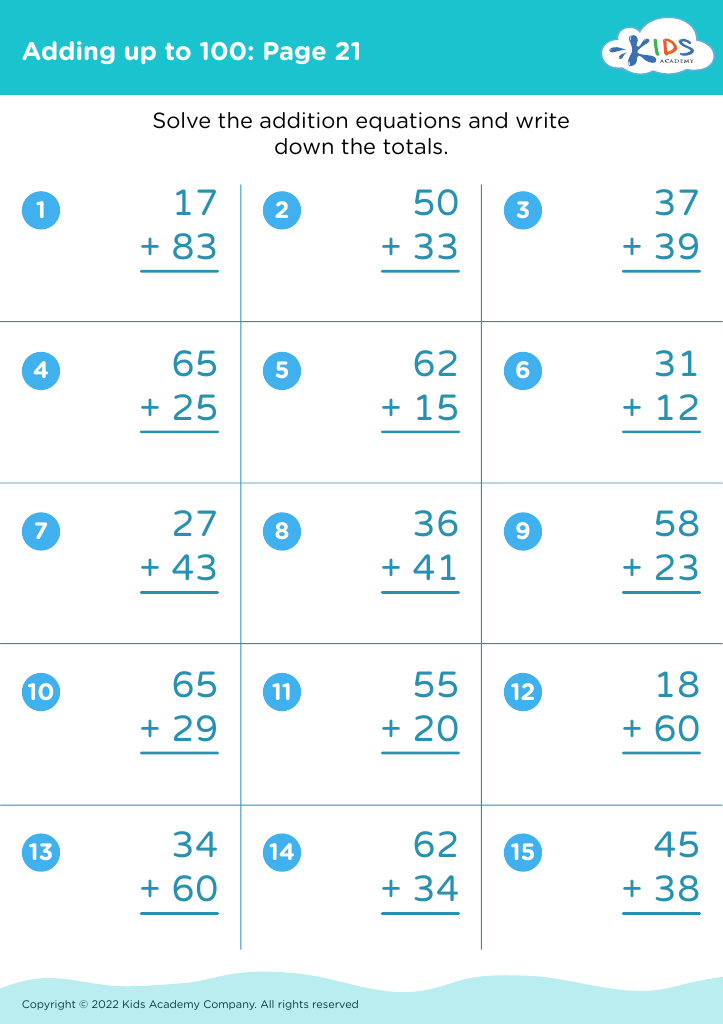

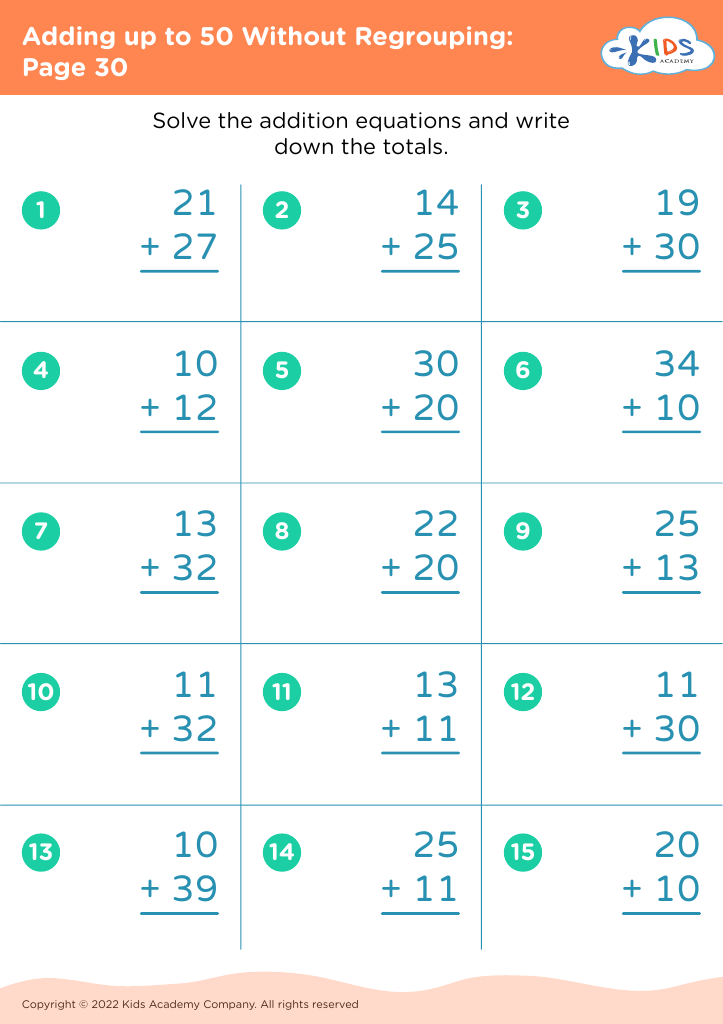





.jpg)










